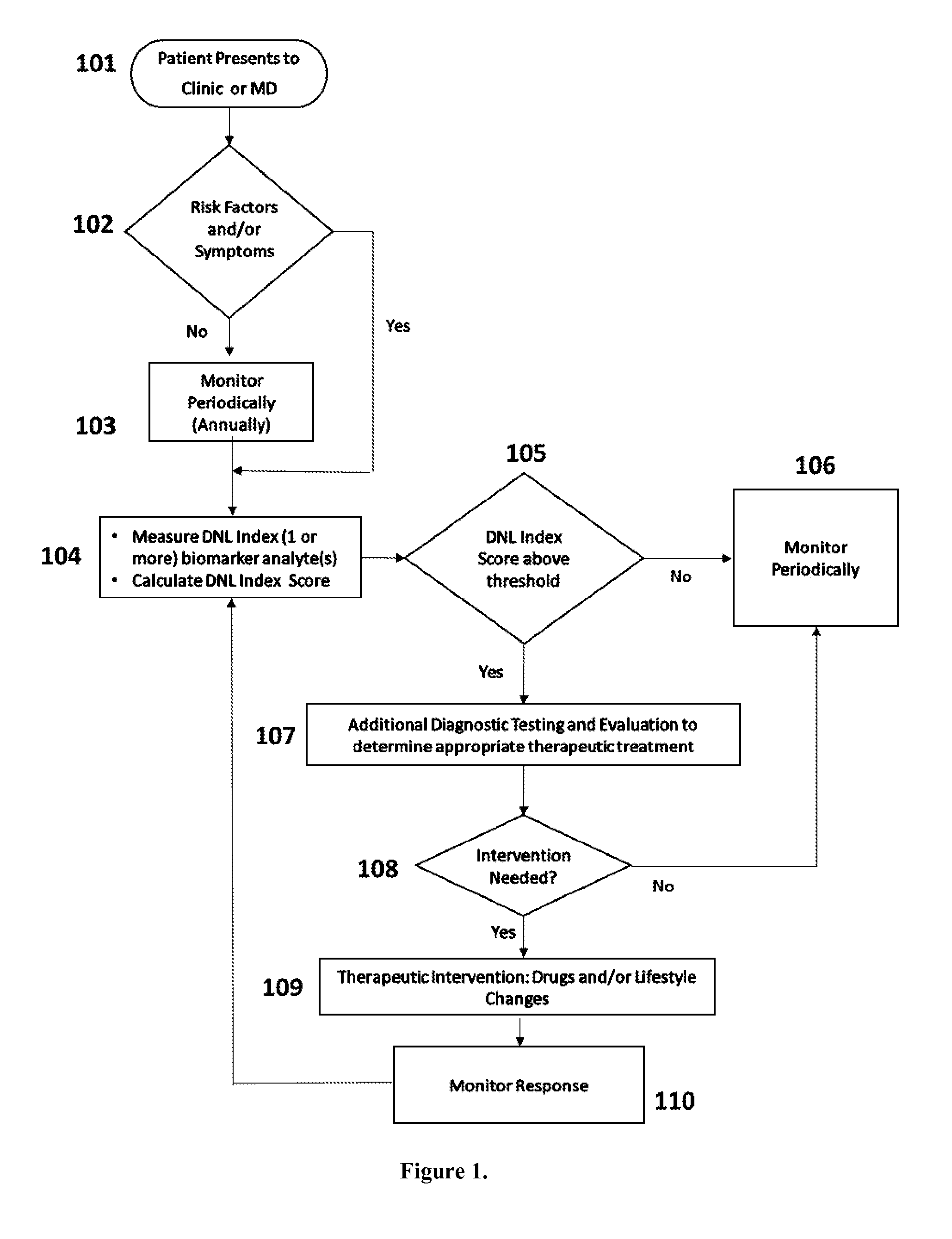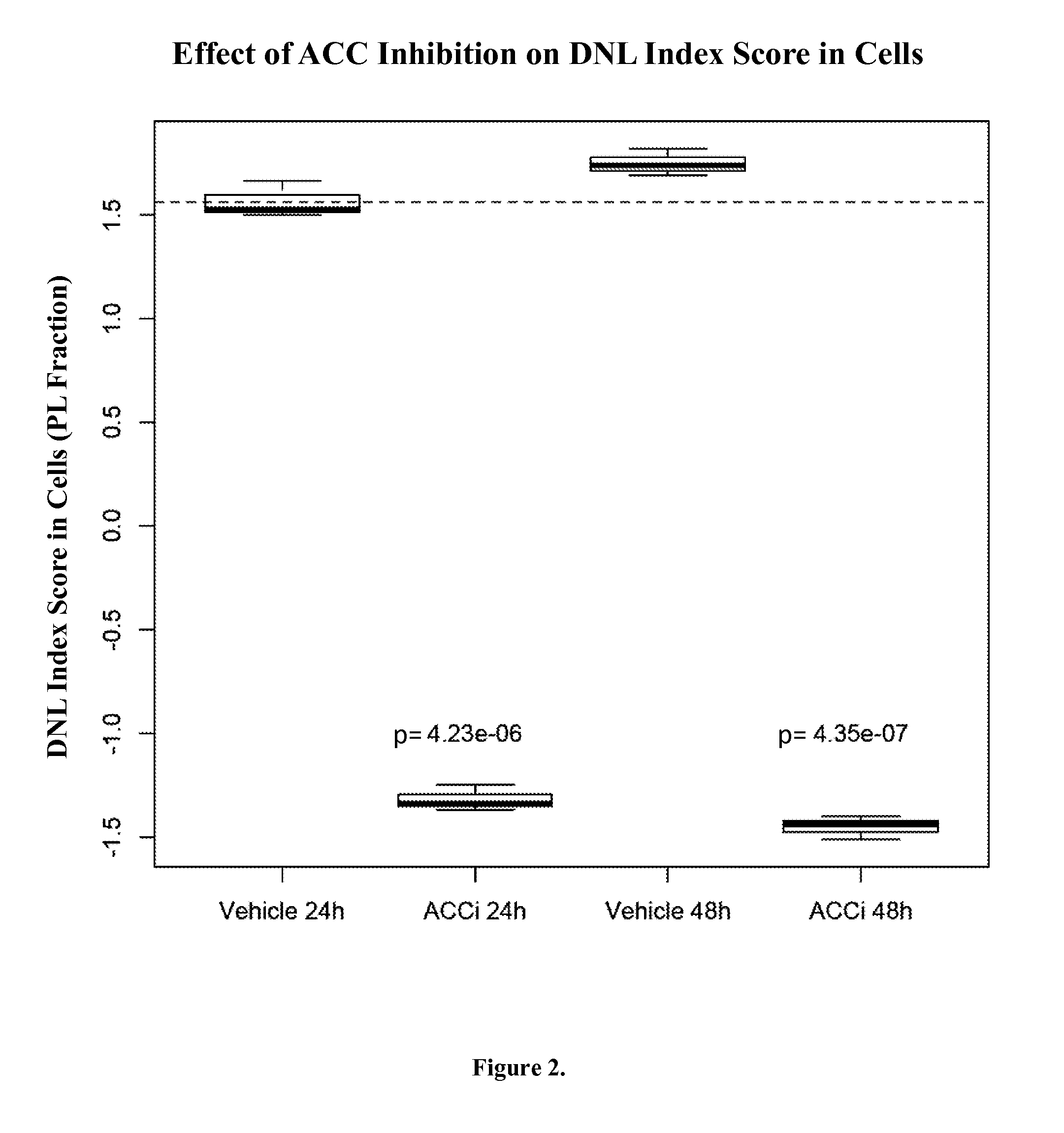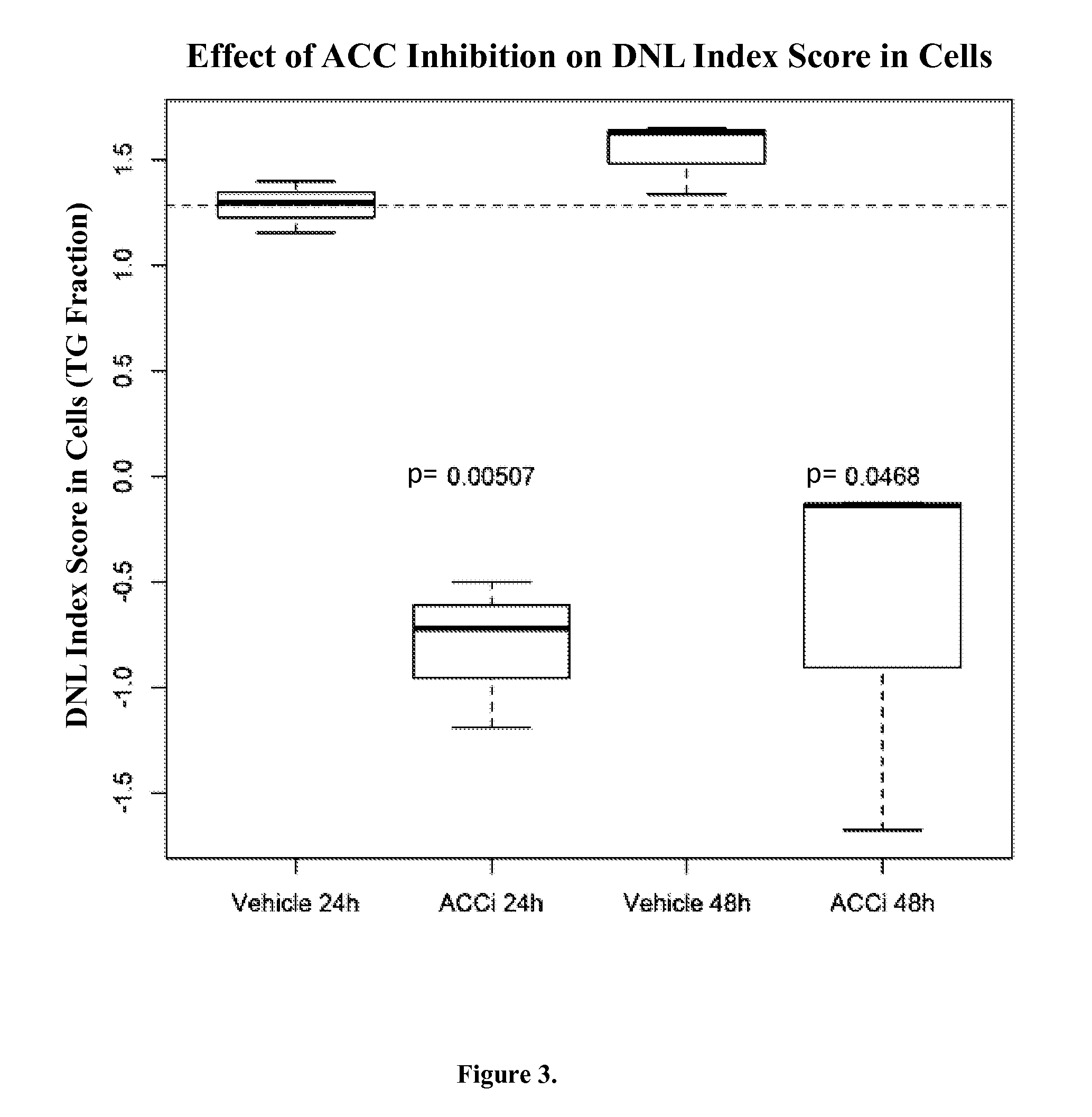Biomarkers of de novo lipogenesis and methods using the same
a biomarker and lipogenesis technology, applied in the field of de novo lipogenesis biomarkers and methods using the same, can solve the problems of difficult in vivo assessment of processes and general use of methods in the clini
- Summary
- Abstract
- Description
- Claims
- Application Information
AI Technical Summary
Benefits of technology
Problems solved by technology
Method used
Image
Examples
example 1
De Novo Lipogenesis (DNL) Index
[0084]Several fatty acids are affected by de novo lipogenesis, some in a positive way (i.e., they are synthesized de novo), and some in a negative way (i.e., they are diluted by de novo lipogenesis or are inhibitors of the process). For example, the fatty acids palmitate and palmitoleate (16:0 and 16:1n7) are products of human DNL (Aarsland A, Wolfe R R. Hepatic secretion of VLDL fatty acids during stimulated lipogenesis in men. J Lipid Res. 1998; 39:1280-1286.; Wu J H, Lemaitre R N, Imamura F, King I B, Song X, Spiegelman D, Siscovick D S, Mozaffarian D. Fatty acids in the de novo lipogenesis pathway and risk of coronary heart disease: the Cardiovascular Health Study. Am J Clin Nutr. 2011; 94:431-438.). Myristate and myristoleate are the 14 carbon analogues of 16:0 and 16:1n7 and are also produced via de novo lipogenesis except in much lower abundance. However, linoleic acid (18:2n6) is exclusively derived from diet (it is the most abundant polyunsatu...
example 2
Effects of Inhibition of De Novo Lipogenesis on DNL Index Score
[0093]Two experiments with cells treated with chemical inhibitors of acetyl:coA carboxylase (ACC) were performed. ACC is an enzyme that catalyzes the reaction that produces malonyl-CoA, which is the required substrate for de novo lipogenesis. By inhibiting ACC, malonyl-CoA is not produced which, in turn, inhibits de novo lipogenesis.
[0094]In the first experiment, cells in culture were treated with the inhibitor or the vehicle alone for 24 h or 48 h. Following treatment, cells were collected and the biomarkers were measured. The levels of the biomarkers were used in the DNL Index to produce the DNL Index Score. The DNL Index Score was significantly lower in the inhibitor treated cells than in the vehicle only control cells, indicating that the de novo lipogenesis was decreased in ACC-inhibitor treated cells. The DNL Index Score was calculated using two lipid fractions, the PL fraction and TG fraction, and similar results ...
example 3
Application of DNL Index to Subjects with Liver Disorders
[0096]Non-alcoholic Steatohepatitis (NASH) is a disease that starts with the accumulation of fat (thought to be in part DNL fat) in the liver and progresses to inflammation and fibrosis. Blood plasma was collected from a total of 60 subjects with biopsy-confirmed staging of the disease (19 subjects with NASH, 2 subjects with NAFLD, and 39 Normal subjects). The biomarkers 16:0, 16:1n7 and 18:2n6 were measured, and the measurements were used in the DNL Index to generate a DNL Index Score for each subject. There was a clear elevation of the DNL Index Scores in NASH and NAFLD patients relative to their normal controls. The results are graphically illustrated in FIG. 5.
PUM
 Login to View More
Login to View More Abstract
Description
Claims
Application Information
 Login to View More
Login to View More - R&D
- Intellectual Property
- Life Sciences
- Materials
- Tech Scout
- Unparalleled Data Quality
- Higher Quality Content
- 60% Fewer Hallucinations
Browse by: Latest US Patents, China's latest patents, Technical Efficacy Thesaurus, Application Domain, Technology Topic, Popular Technical Reports.
© 2025 PatSnap. All rights reserved.Legal|Privacy policy|Modern Slavery Act Transparency Statement|Sitemap|About US| Contact US: help@patsnap.com



